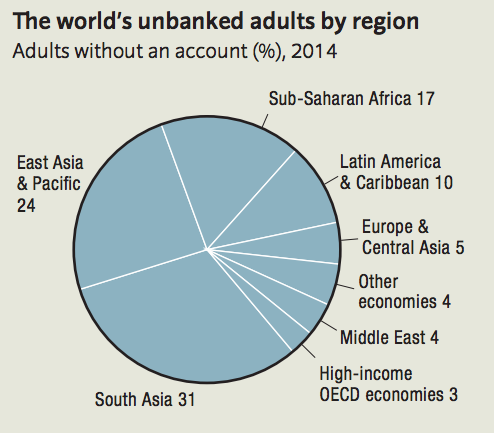Decentralization is at the heart of blockchain; it is even viewed, in the words of Vitalik Buterin, as “blockchain’s entire raison d’être.” While, Bitcoin paved the way for the first use case of blockchain technology; an “electronic peer-to-peer cash system” as described by Satoshi Nakamoto, Ethereum enables anyone to build unstoppable applications: a trustless digital world where its applications don’t have any kind of censorship, fraud or third party interference. A world where you can participate in a democratic and autonomous organization without previously knowing any participants.
In fact, when one buys ether (Ethereum cryptocurrency), it then becomes possible to access and interact with the Ethereum blockchain. While we’re living in an important time in history, where blockchain technology, and especially Ethereum, is changing the world, one of its greatest challenges remains mass adoption.
Nevertheless, blockchain mass adoption cannot happen if:
Buying crypto-currency remains a long and difficult process. Registering online, depositing money and getting verified can take weeks. And time is money. Crypto’s volatility is sometimes presented as a barrier. But as we’ve seen in the past few months, volatility can also be seen as an opportunity for investors, especially when its value can rise dramatically within hours or even minutes during a single day. In order to interact with blockchain technology, people should be able to quickly and safely buy cryptocurrency, without having to pay high fees when they want to do so.
Financial institutions still play a major role when it comes to buying and selling cryptocurrency through crypto exchanges. The most common way to buy cryptocurrency remains online exchanges that require bank transfers, despite the fact that the technology’s core purpose is to bypass central institutions. There are systemic risks of having these giant central institutions that are single points of failure. This current use is far from Satoshi Nakamoto’s vision to create “a purely peer-to-peer version of electronic cash [that]would allow online payments to be sent directly from one party to another without going through a financial institution.”
https://medium.com/@VitalikButerin/the-meaning-of-decentralization-a0c92b76a274
https://bitcoin.org/bitcoin.pdf
Going through financial institutions or using credit cards creates barriers to mass adoption. This problem becomes massive when over 2 billion people are unbanked. These people, who are mostly located in Asia, Africa and South America, are usually living in societies sensitive to abuses of government power and corruption where democracy is not the rule and where corruption exists. Thus, by being unbanked, it’s not only impossible for them to interact with the blockchain-based solutions, it’s also impossible for them to use it in fighting censorship, fraud or third party interference, while building societies which allow for participation in a democratic and autonomous organization.

Source: Global Findex database
 Selling fish inside Mogadishu’s fish market in the Xamar Weyne district of the Somali capital⁴
The last mile issue in cryptocurrency transactions has yet to be solved. Today, Ethereum enables anyone to send ether, so value, from one point to another within seconds. So when Alice (who’s located in Europe) sends ether to Bob (her father who’s located in Africa), it takes only seconds, and the only thing they need for their transaction is a smartphone. However, when Bob receives ether in his wallet on his smartphone, he cannot transform it into cash to pay rent or buy supplies. Nor can he quickly find stores, shops and other businesses that would trade ether for fiat currency or that would accept ether as a means of payment.
Selling fish inside Mogadishu’s fish market in the Xamar Weyne district of the Somali capital⁴
The last mile issue in cryptocurrency transactions has yet to be solved. Today, Ethereum enables anyone to send ether, so value, from one point to another within seconds. So when Alice (who’s located in Europe) sends ether to Bob (her father who’s located in Africa), it takes only seconds, and the only thing they need for their transaction is a smartphone. However, when Bob receives ether in his wallet on his smartphone, he cannot transform it into cash to pay rent or buy supplies. Nor can he quickly find stores, shops and other businesses that would trade ether for fiat currency or that would accept ether as a means of payment.
By centralizing all of the data they gather, current solutions act as a middleman between the buyer and the seller. Moreover, the level of services provided, as well as the user experience is poor. Transactional and user information is stored in their servers, which constitutes a security risk. And the risk of having a user with a fake rating constitutes a point of failure, as it’s centralized and could thus be hacked.
That’s why we’re launching Dether.
What is Dether?
Dether provides a decentralized peer-to-peer ether network that enables anyone on Earth to buy ether with cash and spend it at physical stores nearby. No bank account is needed, just a mobile phone with internet access. Our belief is that the beauty and power of blockchain technology, and especially Ethereum, should be easily accessible to all.
We’ve decided to put all of our energy and that of the Ethereum community into helping us build the first trustless solution that will allow anyone to be able to interact with blockchain no matter who you are, where you are, and without the need for a middleman.

To stay up to date with Dether news you can join us on :
Slack: http://slack.dether.io
Website: https://dether.io
Email: [email protected]
Facebook: https://www.facebook.com/dether.io/
Twitter: https://twitter.com/dether_io
Medium: https://medium.com/
Reddit: https://www.reddit.com/r/Dether/
Sources :
[1] “The meaning of Decentralization” Vitalik Buterin
[2] “Bitcoin : A peer to peer Electronic Cash System” Satoshi Nakamoto
[3] Global Findex Database
[4] Credits AMISOM Public Information



Check out CONTROL FINANCE for 1% lifetime payouts: https://control-finance.com/?ref=Calebfmontague